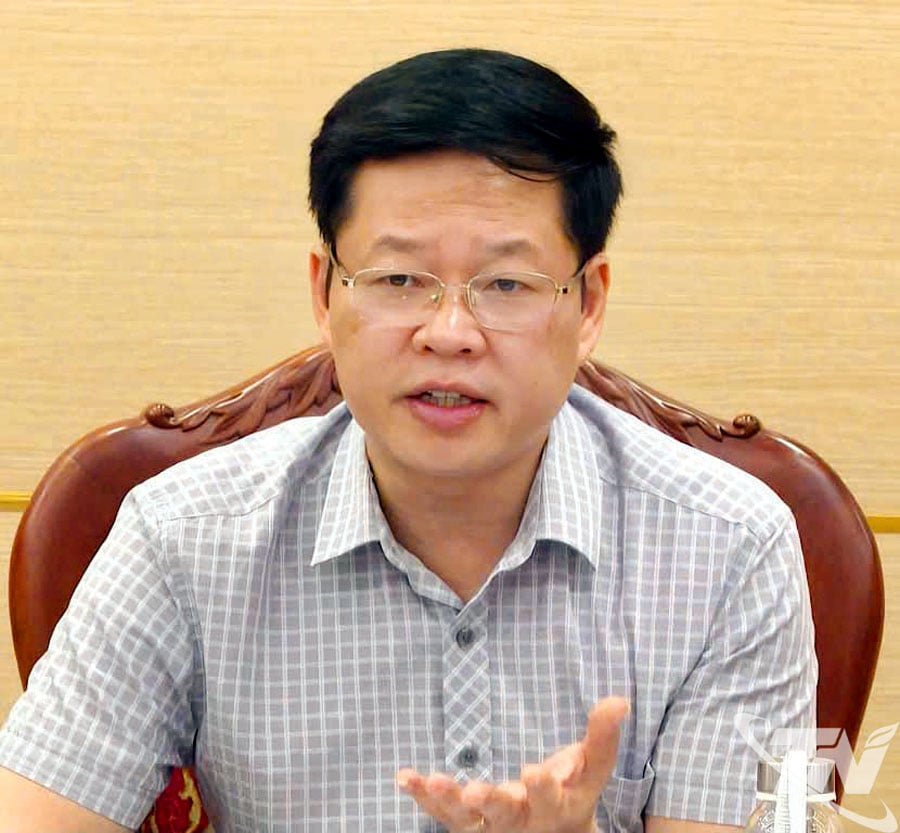 |
| Comrade Dinh Quang Tuyen, Deputy Secretary of the Provincial Party Committee, Chairman of the Vietnam Fatherland Front Committee of Thai Nguyen province. |
The merger of Thai Nguyen and Bac Kan provinces is not just a matter of administrative boundaries. It is the connection of two cultural sources: one is a sedimentary indigenous region, the other is an open interchange region. At a time when the new Thai Nguyen province is shaping the pillars of sustainable development, we had a conversation with Mr. Dinh Quang Tuyen, Deputy Secretary of the Provincial Party Committee, Chairman of the Vietnam Fatherland Front Committee of Thai Nguyen province, to identify the portrait of Thai Nguyen culture - not only from the past but also through the vision of the future.
Preserving identity constants
Reporter: Comrade, if you had to sketch a "cultural portrait" of the new Thai Nguyen, where would you start?
Comrade Dinh Quang Tuyen: I will start from history. Culture is not in books but in every piece of land, in the way of life, in Then verses, in the sound of the Khen and even in the way Thai Nguyen people invite each other to a cup of tea in the morning. That constant identity is the interwoven diversity - where the Tay, Nung, Kinh, Dao, Hoa, Mong, San Diu, San Chay people live together, interact, and blend into a community that not only lives together but also sympathizes.
We have the Tan Cuong tea region – refined and elegant; the ancient Then and Tinh lute – resounding like the heart of the mountains and forests on Ky Yen nights; the Long Tong Festival (going down to the fields) to pray for a bountiful harvest and healthy livestock, the Cap Sac Ceremony marking the maturity of Dao boys, the San Diu voice in the Soong Co folk song, the Dao voice in the Pa Dung melody, the Tac Xinh dance of the San Chay people, the Mong flute sounding on the high mountain slopes… All create a multi-layered cultural picture – very unique, but not isolated.
It should also be mentioned that Thai Nguyen is one of the localities located in the Then ritual area of the Tay, Nung, and Thai people in Vietnam. Six years ago, in 2019, the Then practice heritage of the Tay, Nung, and Thai people in Vietnam was officially recognized by UNESCO in the Representative List of the Intangible Cultural Heritage of Humanity.
To date, Thai Nguyen province has more than 40 national intangible cultural heritages, the most recent of which are the Van - Vo Mountain festival in Van Yen commune (now Van Phu commune) and the folk knowledge of growing and processing Tan Cuong tea, which have been ranked as national intangible cultural heritages.
“Cultural empathy” – the root of integration
Reporter: You just mentioned “cultural empathy” – a rather new concept. In your opinion, what does that mean in today’s integration process?
Comrade Dinh Quang Tuyen: “Cultural empathy” is not created from an administrative document, but is formed from long-term community life. In Thai Nguyen – Bac Kan, ethnic groups not only live near each other, but also live together. They share space, memories and even their hearts. It is this coexistence that creates the Thai Nguyen character – tolerant, affectionate, innovative and creative.
And when merging with Bac Kan to form the new Thai Nguyen province - a region with a strong indigenous and primitive culture that is expanded in both space and dimension - that empathy is raised to a new level. We have the opportunity to deepen our cultural depth and expand the space for integration. Thai Nguyen people today carry within themselves the spirit of "dare to think, dare to do, innovate and create", the aspiration to rise up to build a rich and prosperous Thai Nguyen - and that originates from that empathy.
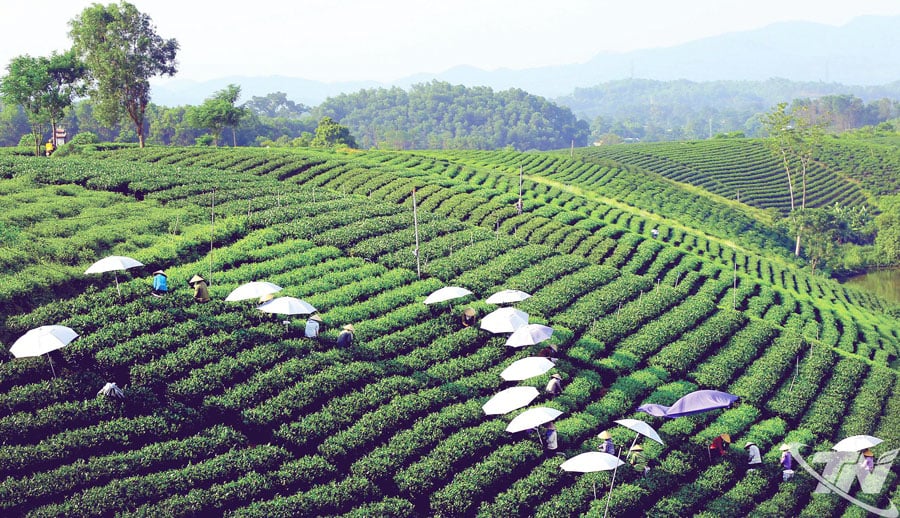 |
| Hoang Nong Tea. Photo: Khac Thien |
To promote cultural empathy in Thai Nguyen, in the coming time, we need to focus on preserving and promoting the value of intangible cultural heritage, traditional festivals and building unique cultural tourism products. At the same time, we need to create an environment for ethnic groups to exchange, share and enjoy culture, contributing to building a diverse and rich cultural identity of the province.
Digital transformation - the "speaker" of indigenous culture
Reporter: Dear comrade, in the increasingly widespread wave of digital transformation, how can Thai Nguyen culture - with its deep identity and national soul - be "retold" vividly in the language of the times?
Comrade Dinh Quang Tuyen: I believe that digital transformation is not a flow separate from culture, and certainly not something that will obscure traditional identity. On the contrary, if we compare indigenous culture to a rustic folk song, technology is the modern loudspeaker that helps that song spread further, resonate more - not only in the minds of Thai Nguyen people but also beyond geographical borders, to the global community.
Culture is only truly alive if it lives with people today – in new living spaces, in the rhythm of modern society. We cannot expect young people to love Then and say Khen if those values are not present on phones, in digital applications, social networks or online entertainment platforms – where young people “live” every day. If we want culture to be inherited, it must first be accessible.
Thai Nguyen – the land of heritage, of resistance memories, of villages and festivals – is gradually digitizing that cultural treasure. We have deployed QR codes at relics so that visitors can access heritage information in a visual and vivid way. On the Tan Cuong tea hills, where the stories of many generations of farmers echo, visitors can now experience it using virtual reality technology – as if they were entering a story being told.
The province is actively building a cultural database for the Viet Bac region – not only to preserve but also to pave the way for the future. We support folk artists – the community's "living archives" – to access digital platforms: Turning Then melodies into podcasts, putting Mong flutes on YouTube videos, turning traditional rituals into audiobooks, interactive games, or virtual reality models to recreate festival spaces.
Especially recently, I am very impressed with the Thai Nguyen digital film studio, which is becoming a modern “cultural creative workshop”, where technology helps spread identity. Here, the animated film “De Men: Adventure to Xom Lay Loi” is vividly localized with tea hills, Tinh lute sounds, Then melodies, Mong flutes and ethnic costumes. A new symbol for Thai Nguyen’s journey to rise up with identity and creativity. We believe in preserving, connecting and developing indigenous values with a global mindset, bringing Thai Nguyen culture closer to the whole country and the world.
The important thing is, no matter how modern the technology is, the root must still be human. No technology can replace the vibration in the soul of the artist, in the heart of the cultural worker. But technology is the bridge - a strong, agile bridge - helping people today step back to the world of their ancestors, step into the treasure of national identity with a new rhythm, a more modern sense.
I believe that, if done in the right direction, digital transformation will not fade the national spirit – on the contrary, it will make cultural heritage more brilliant. Because culture is something that never gets old, it just needs to be told in a way that makes people want to listen.
Tea - the soft language of Thai Nguyen identity
Reporter: As the "first famous tea" region, can Thai Nguyen use tea as a "cultural language" for integration, comrade?
Comrade Dinh Quang Tuyen: It is not only possible, but also necessary to turn tea into a "cultural language" for integration - that is our belief and determination when looking at the future of Thai Nguyen in the new era. With more than 23,000 hectares of tea, an output of about 260,000 tons per year, exported to more than 15 countries and territories, Thai Nguyen tea has long been not simply an agricultural product, but a living symbol of identity - the crystallization of soil, climate, hard-working hands and a lifestyle imbued with the character of the midlands. Each cup of tea is a slice of culture - where there is the presence of sophistication, simplicity, slowness but full of inner strength. Tea is a "soft brand" that has the ability to spread, connect and bring the image of Thai Nguyen to international friends in a natural and profound way.
Regarding tea products alone, I would like to say that in 2019, La Bang Tea (La Bang Commune), specifically Dinh Tam Tra, was chosen as a gift at the APEC Summit 2017, held in Vietnam. This is a great honor, bringing the La Bang tea brand closer to international friends. Thus, tea has participated in the "tea diplomacy" of the Asia-Pacific Economic Cooperation Forum including Vietnam and 20 member countries.
We are gradually realizing that by completing the dossier to propose the recognition of Thai Nguyen Tea Culture as a National Intangible Cultural Heritage - paving the way for the establishment of in-depth cultural institutions such as Tea Cultural Space, Tea Cultural School, Regional Tea Festival associated with the ATK tourism experience chain - where culture, agriculture and tourism intersect. Tea will not only be for drinking, but also for understanding, for living with and for telling a story of identity in the "language of the times".
I envision a future where Thai Nguyen tea can become the subject of an international festival, a material for artistic creation, and even a cultural product representing the country in cultural diplomacy activities.
Tea – with its persistence and purity – will contribute to continuing the integration journey of a new, dynamic Thai Nguyen without leaving its roots. And in that journey, every person in the tea region – from the elderly in Tan Cuong pouring tea to invite guests to young people starting a business with digital agriculture – can become a “cultural ambassador”, creating a Thai Nguyen that is both unique, modern, and steadfast in today’s deep integration.
I would like to add that Thai Nguyen tea products have joined the value chain in the era of development. Tea culture has become an element in the value chain of economy, culture, tourism, ecology... increasing values in the new era.
Many eco-tourism, resort and experience models from tea culture have been born, not only changing the quality of life but also raising awareness, responsibility and pride of the people about the land of "First Famous Tea" Thai Nguyen. In the near future, more than 20 ancient tea trees on Tam Dao mountain in La Bang commune will be recognized as Vietnam Heritage trees, making us more proud of our homeland of Thai Nguyen Tea.
Steps from Resolution to Life
Reporter: After more than 10 years of implementing Resolution 33 on cultural development, what do you appreciate, and what are you still concerned about?
Comrade Dinh Quang Tuyen: What I appreciate most is that culture has become the blood and flesh of life, no longer a slogan. From traditional festivals, heritage spaces, to village life, people have truly lived with culture. The level of spiritual cultural enjoyment of the people has been significantly raised, grassroots cultural life is richer, and cultural institutions are invested in the right direction.
However, there are still many concerns: Some heritages have no successors; elderly artisans have not been properly honored; ancient festivals have been lost due to lack of resources. Therefore, we are building the Thai Nguyen Cultural Development Strategy for the period 2025-2035, with three pillars: Preserving indigenous values, digitally transforming heritage and improving the level of cultural enjoyment at the grassroots level.
Integration into human civilization: Steadfast and methodical
Reporter: Recently, at the 110th Anniversary of the Birth of General Secretary Nguyen Van Linh (July 1, 1915 - July 1, 2025), General Secretary To Lam said that Vietnam must integrate more deeply into world politics, the international economy and human civilization, to stand shoulder to shoulder with the world powers. Mr. President, civilization is a component of culture; in which there is a change to the peak in the way of thinking, lifestyle and ethical standards of people. According to you, what will Thai Nguyen do to not only integrate economically but also join the flow of civilization?
Comrade Dinh Quang Tuyen: Integration into human civilization is a steadfast, methodical and unique journey. Civilization is the synthesis of the most quintessential things - ethics, thinking, lifestyle, creativity and progress.
If Thai Nguyen wants to integrate into civilization, it must build civilized people, which means from education to art, from infrastructure to social behavior - everything must aim for high standards. We will focus on investing in school culture, training the young generation to be proud and open-minded. In addition, we must modernize cultural institutions, develop smart cities associated with community culture.
Artists – people who “write history with emotions”
Reporter: Dear comrade, in the flow of deep integration, when culture is not only the identity but also the soft power of a locality - could you tell us where the artists of Thai Nguyen are on the journey of spreading the cultural values of the province? And in your opinion, what do they need to do to be worthy of the expected mission? On the province side, what plans do the Provincial Party Committee and Provincial People's Committee have to create conditions for artists to develop and contribute long-term?
Comrade Dinh Quang Tuyen: I always consider the group of artists as the ones who keep the fire burning, the ones who write history with emotions. In each stage of the province's development, from the war zone years to the industrialization period, and today, the deep international integration - Thai Nguyen artists are always present as witnesses and cultural creators with artistic souls, with very unique emotions that only artists can touch.
They not only reflect reality – but also predict, warn, inspire and lead the way. I hope that the Thai Nguyen artists will not only continue the glorious tradition of previous generations – those who portrayed the Viet Bac War Zone, the Tay – Nung – Dao identity, the atmosphere of the steel furnace or the sacred soul of the Cau River – but also be pioneers in creating, innovating ways of expression, retelling cultural stories in the language of the digital age.
We are living in a world where technology changes every hour, aesthetics and public approach also change strongly. Therefore, today's artists not only need to immerse themselves in heritage, but also have to engage, explore, write and draw about things to come - not just what has passed. That is their responsibility, but also their opportunity to affirm their role in modern society.
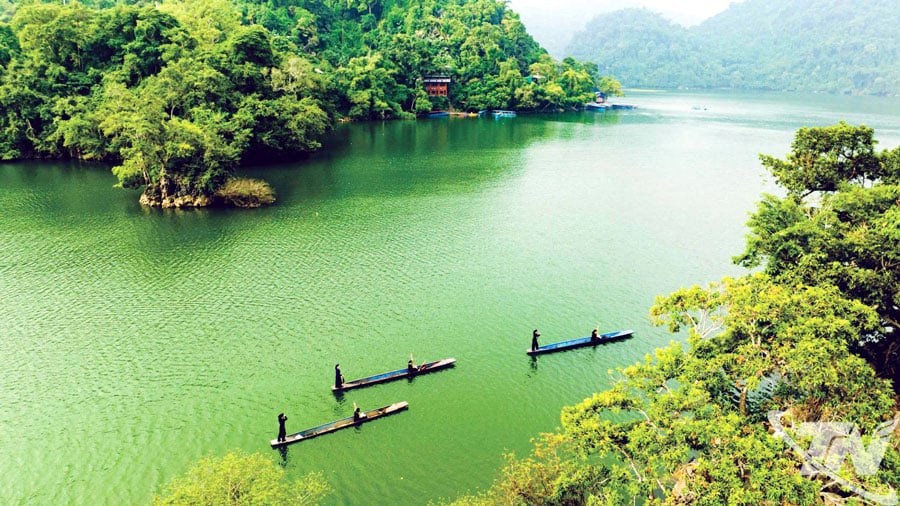 |
| Autumn colors in Ba Be. Photo: Au Ngoc Ninh |
The Provincial Party Committee and Provincial People's Committee identify culture as the spiritual foundation and driving force for development. We are building a cultural creative ecosystem, with artists at the center: From establishing the Viet Bac Regional Cultural Creative Center, expanding the creative camp, building a Folk Culture Garden to forming a Fund to support artistic creation.
We expect that Thai Nguyen artists will truly be storytellers of the times – carrying the spirit of the homeland, bringing the province's culture closer to the public nationwide and international friends.
From village memories to integration stage
Reporter: Comrade, having been attached to Bac Kan for many years – now a part of the new Thai Nguyen – when looking back on the cultural journey of this land, what are your feelings?
Comrade Dinh Quang Tuyen: It is difficult to fully describe in words... it is an emotion that is both sacred and deeply moving in the soul. The cultural journey that I have been through - is not only a working trip, but also the days of living, feeling, and immersing myself in the spiritual life of my fellow countrymen.
I remember clearly the Long Tong Festival with its colorful con fruit in the spring, the Tay people's Ky Yen night, listening to the Tinh lute sound leading the ancient Then melodies resounding in the mountains and forests. I was once fascinated by the cultural colors of the Nang Hai Festival, amazed by the mystery of the Dao people's Cap Sac ceremony, standing silently in the middle of the highland market, where the sound of the Mong flute rose up and blended with the bright eyes of children singing in their mother tongue...
I believe that those memories are being awakened every day, preserved, and more importantly – have the opportunity to be retold in a new voice: Preserving the core of traditional cultural identity in a modern, dynamic, and creative trend.
I always hope that our culture will not only be in museums, not only in festivals for performance, but will live with the times, live in the hearts of the young generation. So that they understand: Where do we come from, and where will we go? Culture, after all, is the source of identity, the spiritual identity, and the most enduring strength that a community can carry on its long journey.
In the new Thai Nguyen – a province that converges cultural, historical and human values from both Thai Nguyen and Bac Kan – I see a great opportunity. We are building a dynamic, modern Thai Nguyen, but at the same time imbued with identity. In that process, culture cannot be just a “backend software”, but must be the foundation for development, the driving force for innovation and the bridge that brings us into the world.
Preserving identity does not mean keeping it in memory or being conservative with tradition. That is the way for us to confidently integrate, so that every step towards the future carries its own identity, not blending in with anyone, not losing ourselves. And from the land of the "Windy Capital" - from the memory of resistance to the desire for industrialization, from green tea hills to open digital space - I believe that Thai Nguyen culture is entering a new era: The era of integration with traditional cultural identity, development with civilization.
Reporter: Thank you, comrade!
Source: https://baothainguyen.vn/van-nghe-thai-nguyen/cung-quan-tam/202507/thai-nguyen-tu-coi-nguon-ban-sac-den-hanh-trinh-hoi-nhap-7fa0ee2/


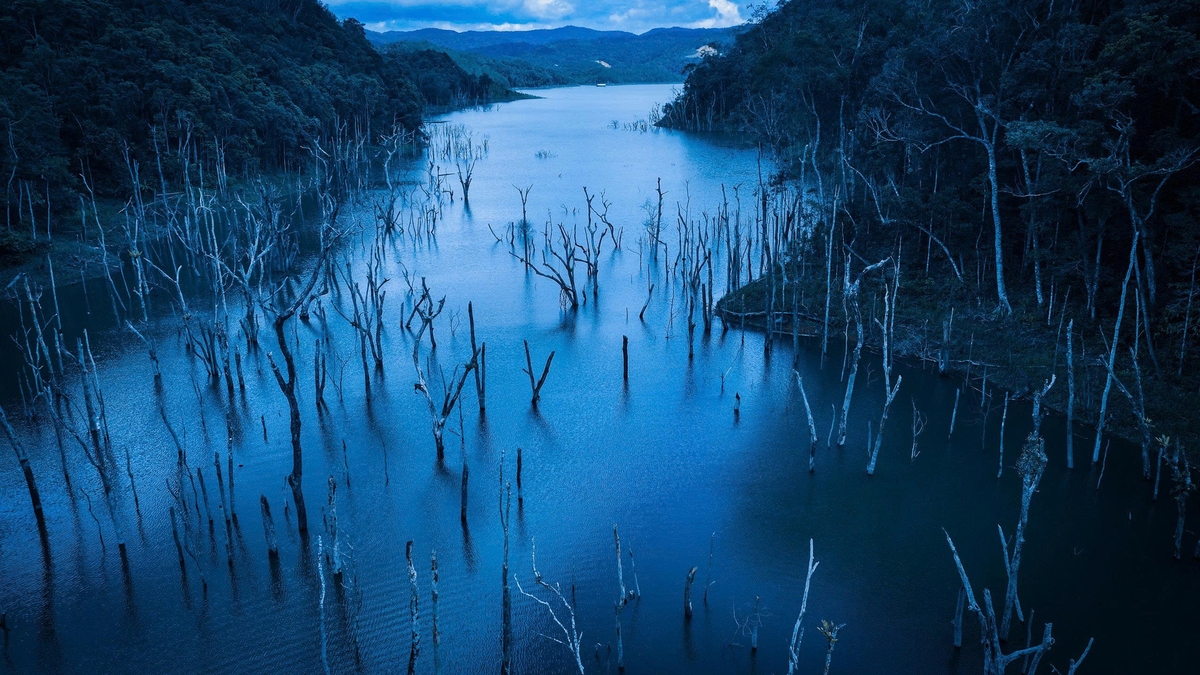
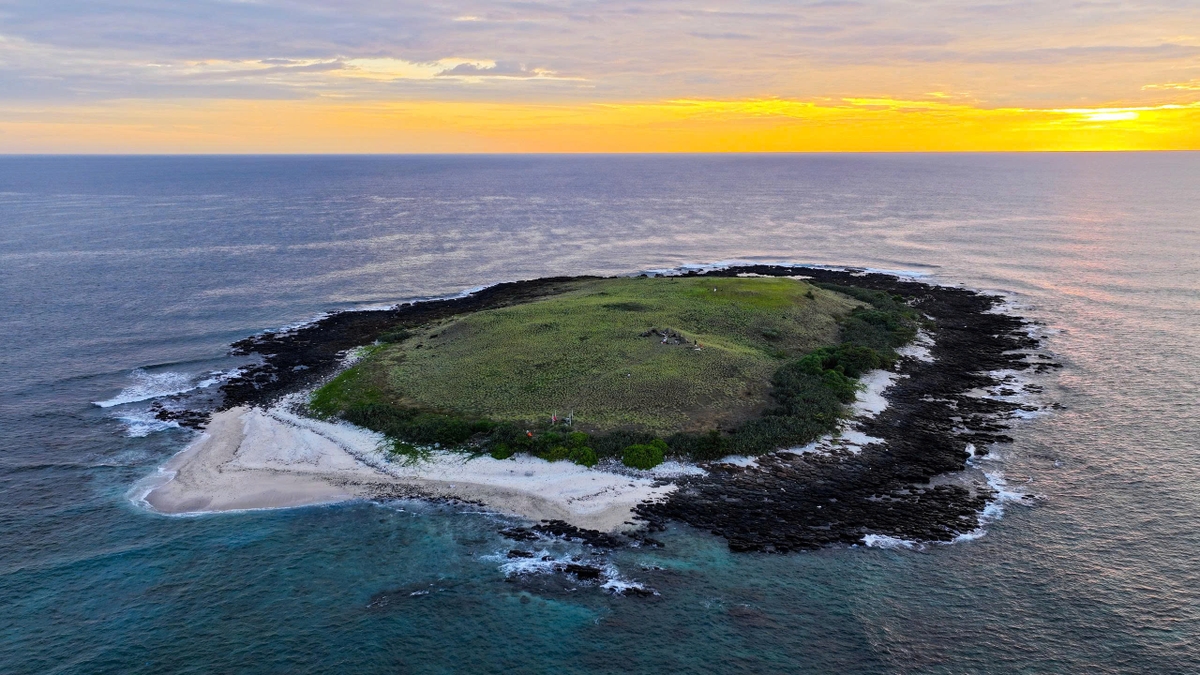


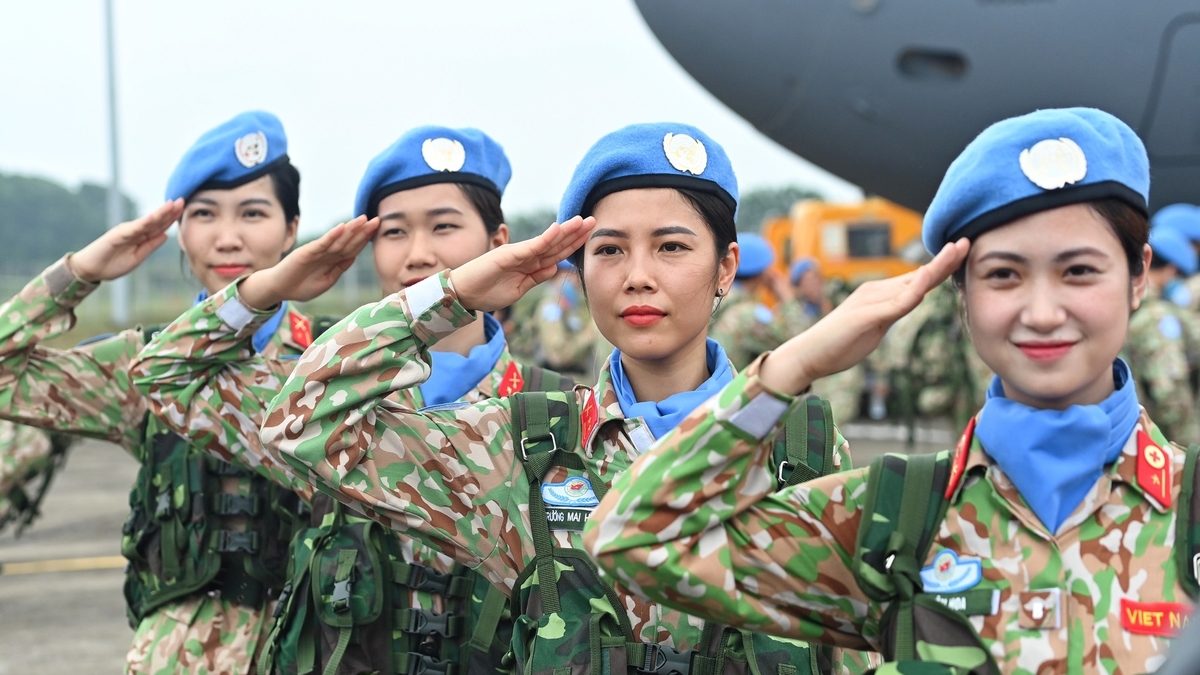

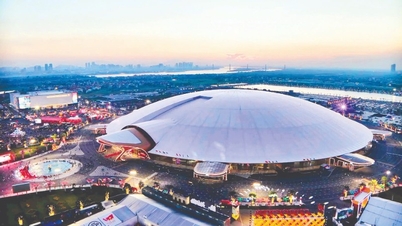

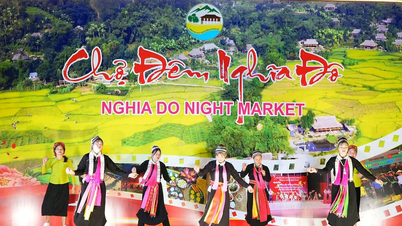

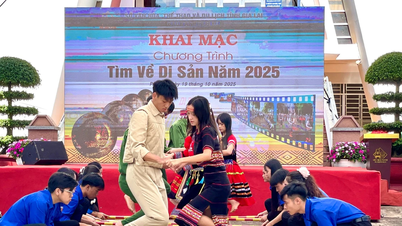

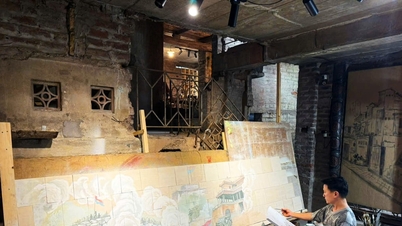


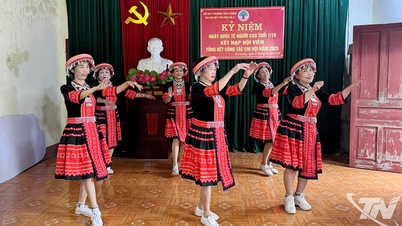




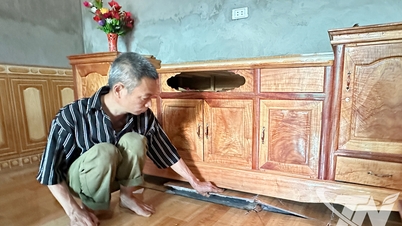
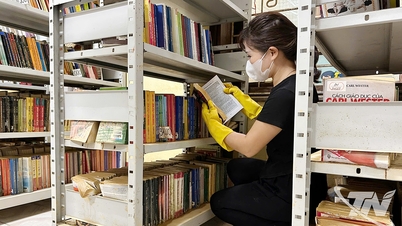
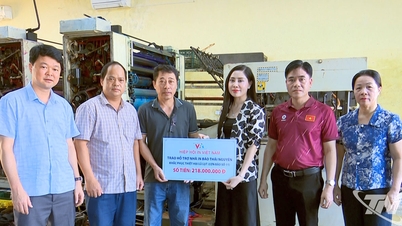
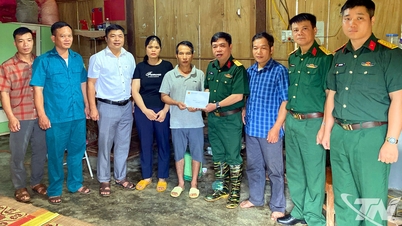
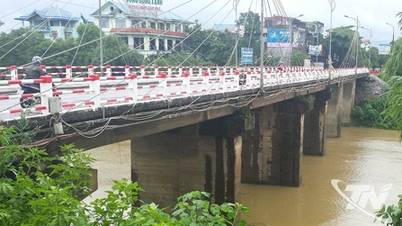

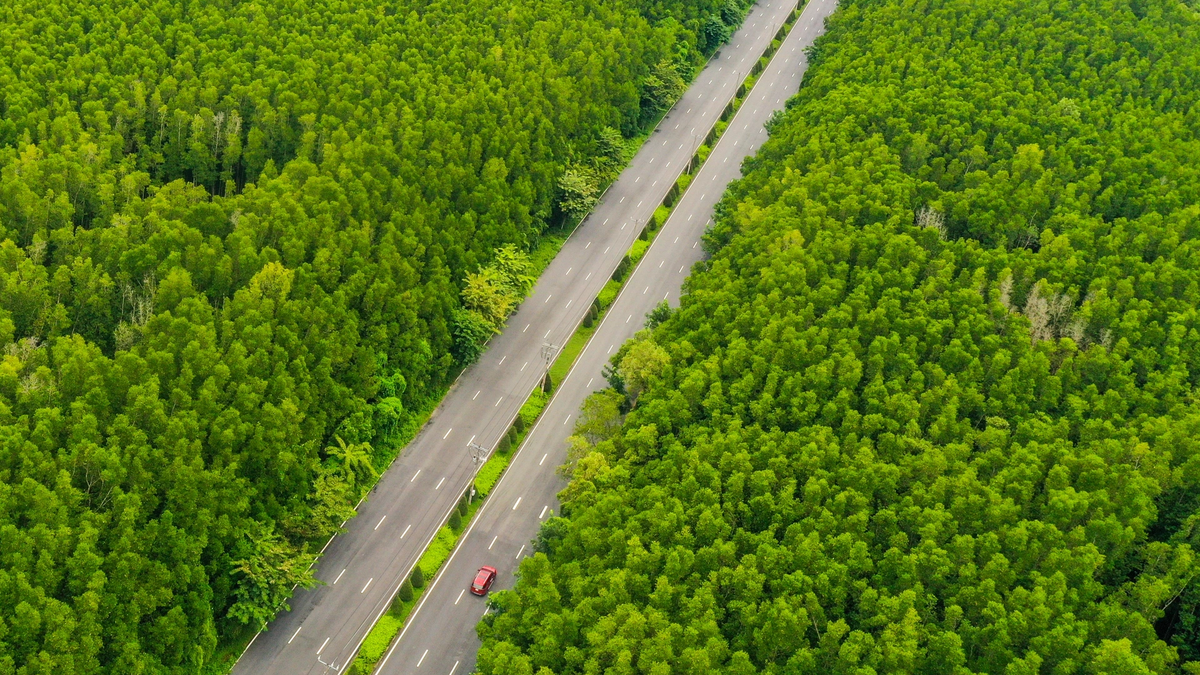


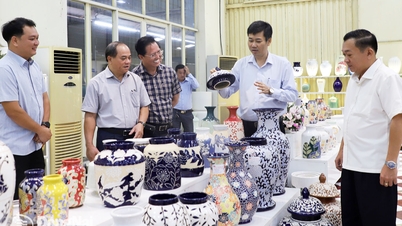











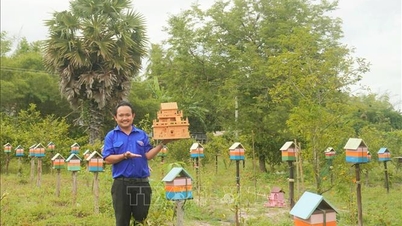




















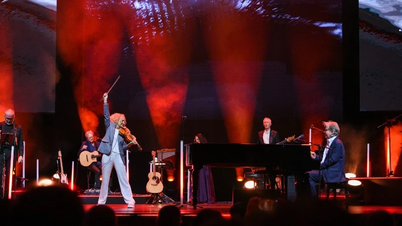




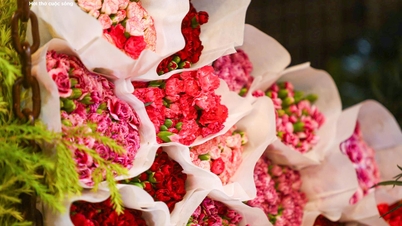
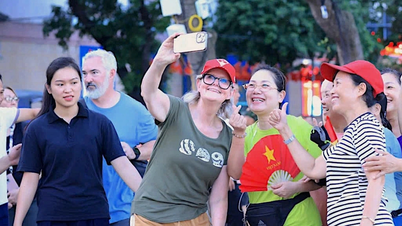

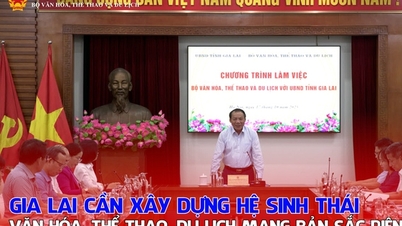

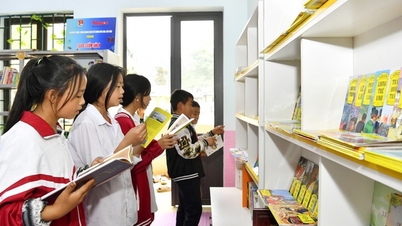




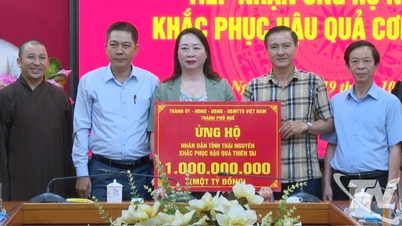
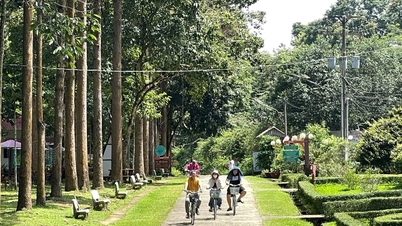

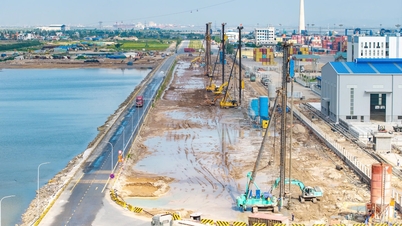

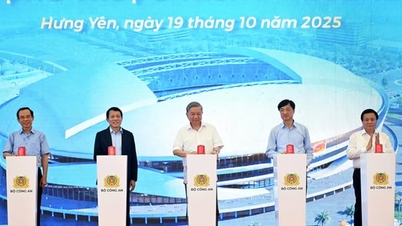


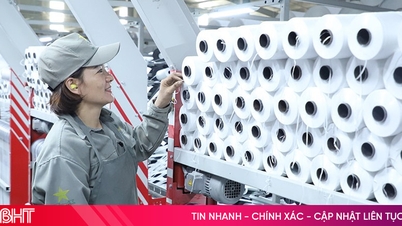









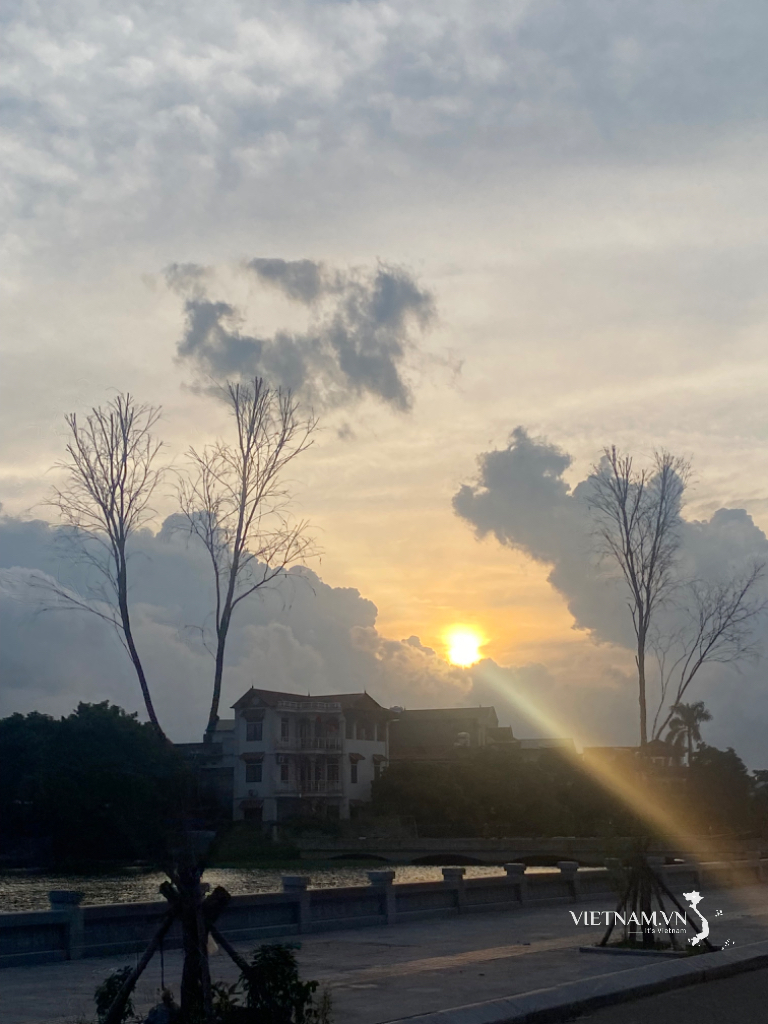
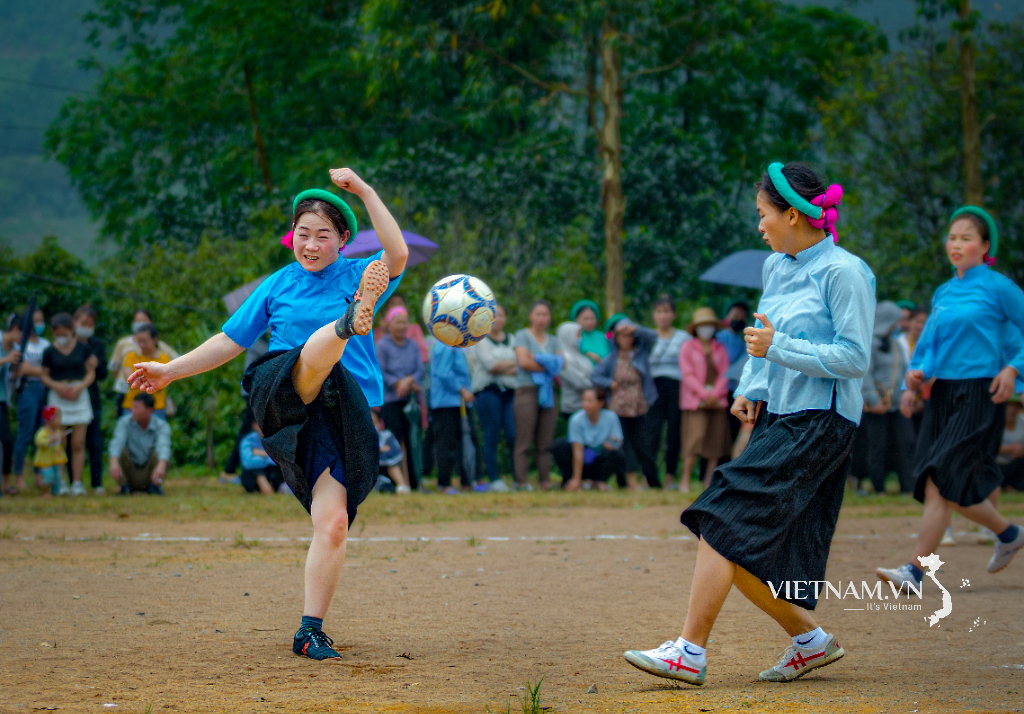
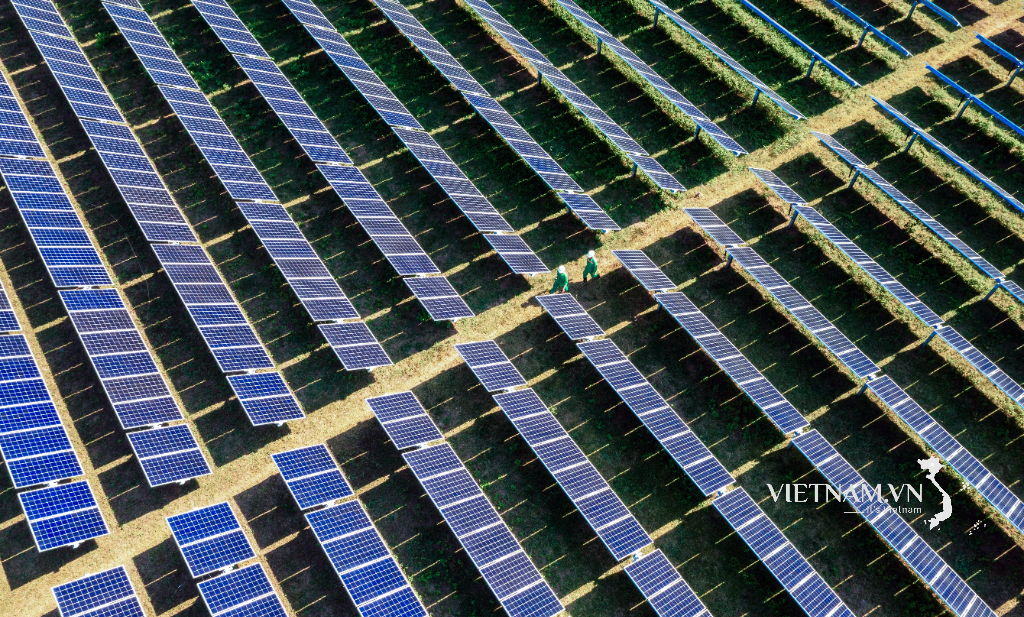
Comment (0)